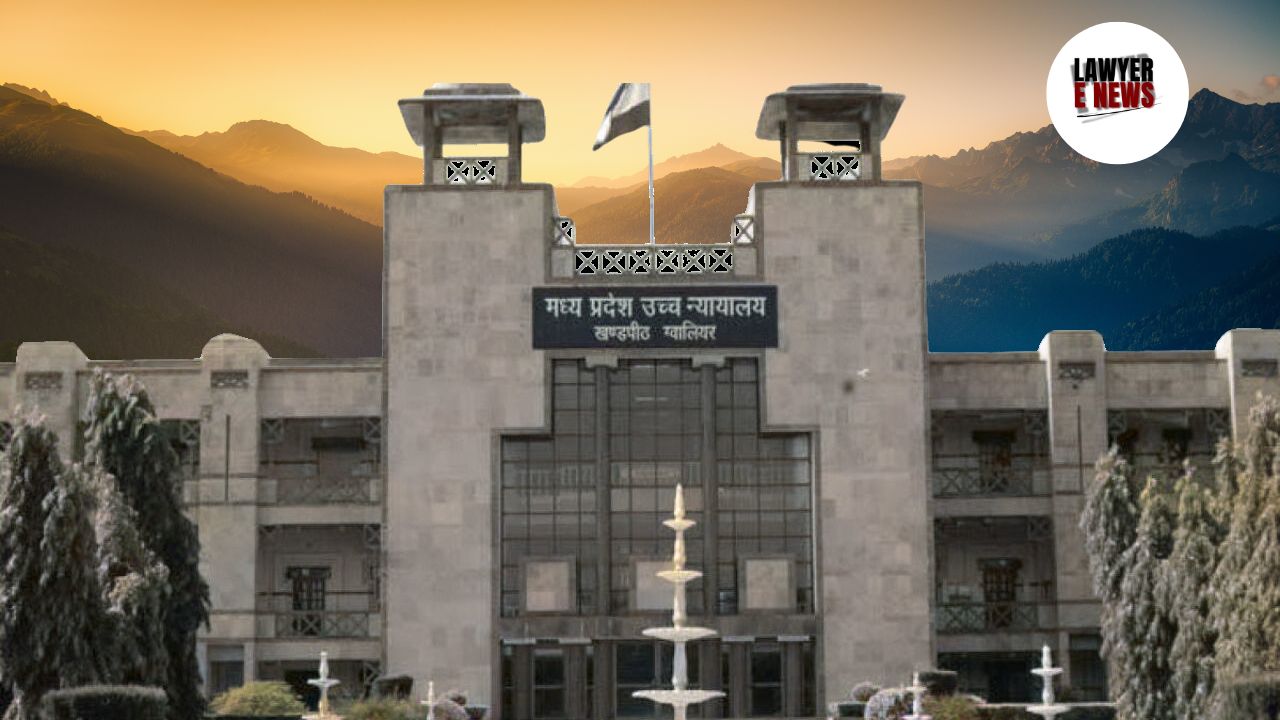-
by Admin
15 February 2026 5:01 PM



Revenue Authorities Lack Jurisdiction to Adjudicate on Wills; Genuineness Must Be Proven in Civil Court - Madhya Pradesh High Court ruled in favor of Ramsakhi in Misc. Petition No. 3952 of 2024, quashing the mutation of property in favor of the respondents based on an unverified will. Justice G.S. Ahluwalia emphasized that revenue authorities do not have the jurisdiction to adjudicate the genuineness of wills in mutation proceedings. Instead, such disputes must be settled through civil courts, where the will must be proven according to legal standards.
The dispute arose over a will allegedly executed by Smt. Pyari Bai, through which the respondents sought to mutate their names in the revenue records. In 2010, the Tehsildar, Rajnagar allowed the mutation based on this will. However, Ramsakhi, the petitioner and also a legal heir, contested this, arguing that the will had not been proven in a civil court. In 2016, the Sub-Divisional Officer (SDO) reversed the Tehsildar’s order and restored the petitioner’s name in the revenue records. The Additional Commissioner, however, set aside the SDO’s decision, prompting the petitioner to file this writ petition.
Justice Ahluwalia ruled that revenue authorities, including the Tehsildar and Additional Commissioner, lack the jurisdiction to adjudicate the validity of wills. The Madhya Pradesh Land Revenue Code, 1959, particularly under Sections 44(2) and 165(7-b), does not empower revenue authorities to assess the genuineness of a will, especially when it is contested. The Court noted: "Revenue courts cannot decide the authenticity of a will. Such matters fall within the exclusive jurisdiction of civil courts, where the execution of the will must be proven by attesting witnesses and any suspicious circumstances addressed."
II. Requirement of Proof Under Indian Evidence Act and Succession Act
The Court emphasized the necessity of proving a will in accordance with Sections 67 and 68 of the Indian Evidence Act, 1872, and Section 63(c) of the Indian Succession Act, 1925. These provisions require that the execution of a will be proven by at least one attesting witness, and the propounder must remove any suspicious circumstances surrounding the will. The judgment stressed that wills are unique in that they speak from the death of the testator, and thus, must be proven with extra care: "A will must be proven like any other document, but its execution, particularly when challenged, requires attesting witnesses and satisfactory evidence to ensure that the testator was in a sound state of mind and acted freely."
III. Civil Court Jurisdiction and Fiscal Purpose of Mutation
Citing precedents from the Supreme Court in cases such as Jitendra Singh v. State of Madhya Pradesh (2021) and Hariprasad Bairagi v. Radheshyam (2022), the Court reiterated that mutation entries in revenue records serve only fiscal purposes and do not determine ownership or title. The Court held: "Revenue records do not confer ownership; they are only relevant for the collection of land revenue. Questions of title, especially based on wills, must be resolved by civil courts."
IV. Decision and Liberty to File Civil Suit
The High Court quashed the orders of the Tehsildar and Additional Commissioner, restoring the SDO's 2016 decision, which reinstated the petitioner’s name in the revenue records. The Court granted the respondents the liberty to file a civil suit to establish their title based on the contested will. If such a suit is filed, the mutation entry will be subject to the outcome of the civil litigation.
The petition was allowed, and the Tehsildar and Additional Commissioner’s orders were quashed. The Court ruled that only a civil court can determine the genuineness of a will, and any mutation based on an unproven will is unsustainable. The respondents were advised to seek a declaration of title in a civil court, and the mutation entry would depend on the final verdict of such proceedings.
Date of Decision: October 14, 2024
